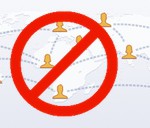Privacy: The cost of admission?
Confessions of a “non-facebooker”.. or.. why the cost of admission is too steep!
If you’re not paying for something, you’re not the customer; you’re the product being sold.
– Andrew Lewis
 My colleague stood genuinely “stunned” for a few seconds while they tried to process the fact I was not on Facebook, had never used Facebook and clearly had no plans to ever use Facebook…
My colleague stood genuinely “stunned” for a few seconds while they tried to process the fact I was not on Facebook, had never used Facebook and clearly had no plans to ever use Facebook…
Yes, I was a confirmed early-adopter of most things networked, had at least a 20-year presence online, being “online” well before the inter-connectivity of networks and had my work recognised in some surprising places!
My colleague stated the obvious, one more time, just to be sure.
YOU, of all people, are NOT on Facebook? I don’t get it?
Of course, the simplest answer was that I have no friends or social network. Whilst funny, not entirely true. The realisation soon dawned on my colleague that I chose not to be “on” Facebook. This was surprising to both of us. Certainly, everyone I know uses Facebook [almost everyone I know].
Apologies to the python crew…
Having reached adulthood, graduated from school, worked a little, graduated from university,travelled a lot, all without the existence of modern computers or “the internet” and then having spent my entire working life [since] immersed in the connectivity and collaborative space that ubiqutous connectivity continues to bring to our lives, gives me a reasonable “pre and post internet” perspective. I can see the irony.
I advise individuals and organisations [at times] on their use and implementation of online technologies and the implications for their lives and business. I thought it useful to make some simple observations from someone who finds themselves awkwardly between the “builder” generation of my parents [who experienced the great depression and wars, thus suspicious of the transitory nature of “the good times” and always fiercely self-reliant and self-contained] and the confident, ambitious and achievement-oriented “Gen-Y / Millennials” or whatever ridiculous catch-all stereotype we try to use to define individual characteristics of whole generations. A generation that has only known the internet and accepts readily, and often without question, a very different definition of privacy and personal expression than I.
Of course I accept some of this as simply the age-old “generation gap”. We do things differently, “my generation” does not “get it” and “their” generation cannot view their own actions through “our” lens of experience.
In fact Scott McNealy, CEO of Sun Microsystems in 1999, said, quite bluntly:
You have zero privacy anyway. Get over it
As the original author of the piece quoting McNealy said, he is right about the first part, but not about the second part.
Given we have progressed over a decade since that statement was made, I see much in the structure and ownership of data that should be carefully considered by individuals and organisations alike.
Unfeted aggregation of the minutae of 100’s of millions of people lives, as individual bits and bytes of data may not seem relevant, but cloud-based aggregation of such data [ and the subsequent corporatised use/ownership of that data] is driving deeper in to the daily lives, spending patterns, tracking patterns and “thinking patterns” of users. All this to drive advertising and other “new-media” business models has an uncanny resemblance to the “big-blue” concerns of the 60’s and 70’s.
Ironically, the rise of the personal computer was designed to lessen the centralised “main-frame” view of connectivity and place greater granular control back in to the hands of the users, avoiding the very silos that it appears millions and millions and millions and millions of people are blissfully rushing headlong towards.
We have seen in the most recent events around “sub-prime” financing, the unethical and in many cases almost inexplicable practices of financial institutions destroying any notion of credibility with lending practices that cease to be recognised as anything that even approximates what I would understand to be responsible or prudent business practice. The global financial crisis of 2009 and beyond has heralded our first glimpse of post-modern corporations that are too big to fail and pose risks on society in ways that we are only beginning to understand.
We are also witnessing a curious and at times breathless disregard for what I used to understand to be an individual’s consent to the access, use or distribution of their personal information.
However, I think that this may be a concern that many (perhaps a majority) of those my own age and certainly those younger than me, simply do not share, or for that matter, even consider to be an issue.
In an age when personal images , deep thoughts on religion or sexual orientation, political affiliations, the display of open biases and hatred and even the publication of real-time location data [pleaserobme.com] are simply bytes that get added to public spaces such as Facebook, Foursquare or twitter, I come to realize that whatever demographic and generational train this is, it has already left the station without me…
The most recent controversy over PATH’s use of a user’s entire Phone book /contacts being uploaded and stored on their servers is, as the author of the original post that discovered this practice said, in a most under-stated way, “a little creepy”.
To say the least… To have a third-party possess and potentially manipulate, share or on-sell such information is a legal and ethical mine-field.
When we combine the almost universal use of Facebook or similar services, particularly on mobile devices that combine access to a unique device identifier [UDID] and have geo-location capabilities, we have the combined power of third-party [and even further remotes entities] being able to correlate UDID to a real-world individual, effectively in real-time.
Such trust in third-parties [and others] is not something I share with [apparently] the vast majority of the populace. When we consider image services, social networks, business messaging services, cloud storage and mobile data products linked to handsets, we see the move that began in the 70’s, away from the “main-frame” to the relative safety and “ownership/control” of the user and their desktop, has begun the inevitable march back in to the network or “cloud”.
The cost and extent of such infrastructure was unimaginable in the 70’s or 80’s or 90’s. Today, the cost for the average user to access all the wonderful services and products available within such a network, is a mere pittance in monetary terms.
The difference this time is that the “cost of admission” is not monetary, rather it is personal. Personal information, personal practices, routines, habits, views and preferences. All monitored and aggregated. In many cases, by [in the old language] minors. Children or minors, does not appear to be a concept that the digital age understands nor really makes provision for. Certainly miners of data is understood, but not so data of minors.
Of most concern to me is that this “cost-of-admission” is almost ubiquitous and that the use, control or transfer of so much information about individuals is opaque at best.
This has serious ramifications for governing boards and individuals alike as increasing details of employees, customers, financial transactions, location and related habits are stored and shared online in ways individuals cannot easily or readily comprehend nor in most cases, discover or retrieve.
When we consider the ethical and moral challenges of even the smallest issues to do with “accidental” use of an individual’s or organisation’s contact lists [of which we see almost daily on our own email!] and compare this to the regulatory, legal and ethical challenges being debated during the so-called “News of the World Hacking Scandal” , we come to realise that notions of privacy, identity and the right to determine what information an individual considers “personal” or “public” is still very fluid and highly complex.
Even as I have been writing this over the last week, the debate over the right of prospective employers requiring password access to applicant‘s online networks adds further confusion to the space, even soliciting response from Facebook’s Chief of Privacy!!
As Dave Winer cautions, the evidence that ethics are not as present in Silicon Valley boardrooms as we would like, is self-evident.
Attempts by governments to legislate within this domain are fraught, as seen by the debates of the US Governments Stop Online Piracy Act[SOPA] and the Online Protection and Enforcement of Digital Trade Act.
It is still unclear as to whether such laws are designed to protect individuals from corporate misuse or to protect existing corporate markets and trade practices from disruptive technologies.
Perhaps most sobering is Alexis Madrigal’s recent article in The Atlantic – I’m Being Followed: How Google—and 104 Other Companies—Are Tracking Me on the Web..
In this she points out that the simple act of loading her morning news web site produced data thats was sent to ten different tracking and monitoring sites. In all she has found 104 other companies tracking her on the web.
[Edit April 2012 – In a very telling development, MacWorld highlights thatThe makers of the mobile app Girls Around Me came under fire this past week for helping men to “stalk” unsuspecting women, but the incident also reveals how much we still have to learn about what social networks reveal about us….
Food for thought….
As an aside, there is a handy little tool called Collusion that will visualise your own “footprints” around the web.. Have a look here.
What sound will the bubble make when it bursts?

